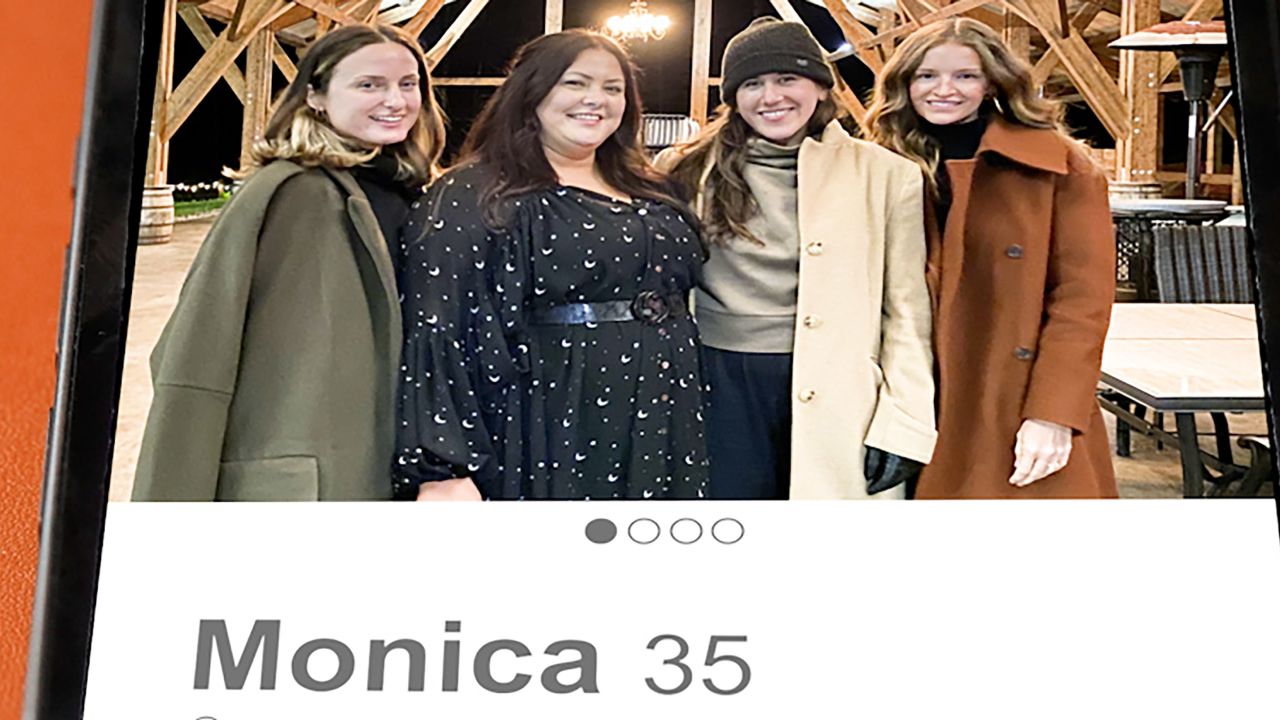Get inspired by a weekly roundup on living well, made simple.?Sign up for CNN’s Life, But Better newsletter for information and tools designed to improve your well-being
As if the world of online dating isn’t confusing enough for anyone who’s dipped a toe (or more) into it, there aren’t just green and red flags anymore. Those clear signs to accelerate or put on the brakes in a budding relationship now have a neutrally hued cousin.
Meet the beige flag.
The term that went viral earlier this year on TikTok as?#beigeflag?is still going strong, with more than 1.3 billion views and counting. The highly individualized perceived personality quirks shared on social media include setting?timers?instead of alarms and having?no trauma.
That these traits are neither here nor there only makes beige flags all the more confusing.
“When I think of beige flags I think of things that are generally neutral to good, that most people would consider reasonable, unremarkable, or maybe quirky but not actively harmful,” said Jennifer McGillan, 48, of Starkville, Mississippi. She first heard of beige flags on X (formerly known as Twitter) in the context of?“fannish discussions about what BTS members’ beige flags are, and beige flags for other K-pop bands,” she said.
The chatter on social media made McGillan, who is in a relationship, reflect on what a beige flag would be to her, and she said she landed on?“someone having opinions about the infield fly rule.”
“I do not have strong feelings about what anyone thinks about the infield fly rule,” said McGillan, an archivist.?“I understand it’s a hot topic among baseball fans, so this is not a beige flag for everyone, but it is for me.”
Other beige flags for McGillan might be someone who?“organizes books by color,” which she said is?“funny but would also make my brain itch.”
If that all sounds highly subjective to you, that’s exactly what a beige flag is.
What is a beige flag?
Beige flags have come into the dating lexicon of late as an?“easy way to describe aspects of dating that may not be red flags, but something the person (on the receiving end of one) might be cautious of moving forward,” said Alyssa Mairanz, founder of New York City-based?Empower?Your Mind Therapy, a practice specializing in couples and relationship counseling.

While not necessarily a deal-breaker, beige flags can represent something a little unusual, she explained.
“The idea of beige flags — or compromising versus settling — as well as deal breakers in a relationship come up quite a bit when discussing dating,” Mairanz said via email.?“Having terms like this can be helpful for people to more accurately describe situations or feelings that they are unsure about.”
While red and green flags are clearer in what they convey, Mairanz said that it’s important to recognize that the entire concept of what works with dating as well as flags to look for — green, red, pink (as in not quite red), beige and otherwise — are completely subjective and individualized.
Beige flags and your dating profile
For Blaine Anderson, who runs a coaching website for heterosexual men called?Dating?By Blaine, strategizing with clients to eliminate beige flags from their conversations and dating profiles is essential to help them stand out in an enormous pool of suitors, particularly online.
One of the most common beige flags on anyone’s dating profile is the line?“I love to travel,” she said.
“Who doesn’t love to travel?” Anderson said.?“It’s effectively non-descriptive.”
She points to specificity as the solution for beige flags.
“I help clients tell unique, evocative, personal stories that speak to the specific women they’re trying to attract, whether they’re communicating about themselves online or in-person,” Anderson said via email.
Instead of saying you love to travel, for example, she recommends talking about a moment instead — about the time it started flooding while you were exploring the Venice canals, for example, or some other meaningful travel memory.
Dig beyond labeling it a beige flag?
A little grace surrounding beige flags can go a long way.
People on the receiving end of beige flags should perhaps not be so quick to categorize them, said Sharin Shafer, chief operating officer of members-only London matchmaking service?Bond, The Agency.
“Sometimes, things are considered beige flags because they are conventionally synonymous with benign behaviours,” she wrote in an email to CNN, giving examples such as only sitting forward-facing?on a train or always eating pizza on Fridays.
It’s easy to call such behaviors beige flags if you find them strange or unusual, she said, but you can also choose to interpret them as someone?“living their preferences.”
If the beige flags and quirks are neither of great importance to you nor irritating, she said, why not view it as your potential partner being self-assured enough to know their own mind and what they do and don’t like?
Red flags, on the other hand, should never be minimized, she said.?“They keep us away from dangerous situations or toxic relationships that could cause us harm or hurt or both.”
Real-life communication is key
While the concept of beige flags gained momentum as a social media trend, it’s important to bring the topic into the real world with a potential partner if it’s on your mind — and spend time reflecting about it on your own (offline).
People are often confused about what is acceptable or tolerable behavior and are crowdsourcing online for answers, says Clarissa Silva, a New York City-based?behavioral scientist?and relationship coach.
“I often advise clients to map out scenarios of what is acceptable and tolerable and play that out in the future of the relationship,” she said.?“Sometimes those quirky habits become green flags. Other times they are red.”
Common beige flags her clients have noted, Silva said, include women complaining about a lack of planning initiative from their male partners — something that can become a red or green flag, she said.
“This can become a source of resentment when the woman feels overburdened and taken advantage of,” she said. Alternatively, having the planning left up to them can make women feel empowered to create and fulfill their desires without?“interference” from someone else.?
Beige flags she has fielded from men include comments about their partners overcommunicating, which might mean repeating information more than once, oversharing details of a friend’s life events or celebrating minor events throughout the day.?“It can be perceived as the potential for nagging in the future,” Silva said.
Shafer cautions about reading too deeply into beige flags.
“If you are dismissing people simply because they have a quirk that does not match with your idea of your perfect soulmate, then you could be missing great opportunities to meet someone with whom you could have a meaningful relationship and with whom you could be very happy long-term,” she said.
Unless the beige flag goes against your ingrained values or beliefs, try to put it in the back of your mind.
“Get to know the person and see if you can dismiss the flag completely rather than fixating on it before you have really gotten to know your potential partner,” Shafer said.
Terry Ward?is a Florida-based journalist whose beige flag is that she loves to travel.




